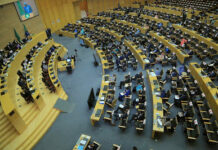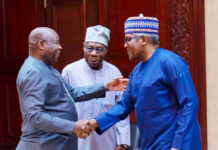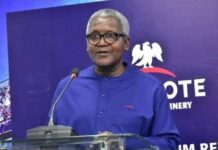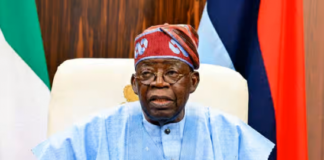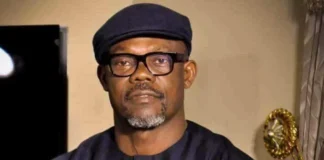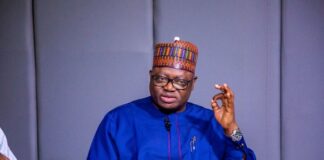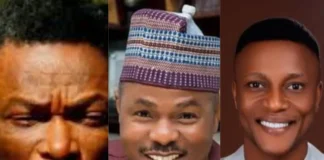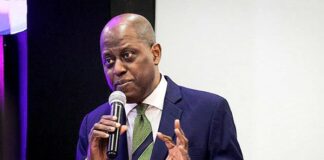Emmerson Mnangagwa vowed sweeping change as he was sworn as Zimbabwe’s president Friday, seeking to reassure foreign investors and pledging to fight poverty and corruption after Robert Mugabe’s shock resignation.
In his inaugural address, the new president set out a programme of dramatic change that promised a stark reversal of many of Mugabe’s signature policies.
He pledged that his government would compensate white farmers whose land was seized by Mugabe, would protect international investments in the country and re-engage with foreign powers.
Elections scheduled for 2018 would continue as planned, he said.
“I humbly appeal to all of us that we let bygones be bygones,” he said at the ceremony in the 60,000-seat national stadium, which was packed to capacity.
“We must work together — you, me, all of us who make this nation.”
After reciting the oath of office, he was given a ceremonial chain and sash of office flanked by his wife Auxilia, receiving salutes and pledges of allegiance from the country’s military and security chiefs.
Military aircraft and helicopters then staged a fly-past.
‘Mugabe’s legacy of ruin’
“We are excited and expecting a lot from Mnangagwa. We have been under a dictatorship for a very long time,” said 23-year-old Sharon Mauyakufa.
The 93-year-old former president, who ruled Zimbabwe with an iron rod for 37 years, was ousted after the military intervened over his sacking of Mnangagwa as vice president on November 6.
Two days later, Mnangagwa fled the country, only returning on Wednesday when he said Zimbabwe was entering an era of “full democracy”.
But critics have warned Mnangaga — whose ruthlessness won him the nickname “The Crocodile” and who has been accused of overseeing violence and ethnic massacres — could prove just as authoritarian as his mentor.
Friday’s 21-gun salute marked Mnangagwa’s transformation from a sacked enemy of the state to president of a nation of 16 million people.
“We thank you, our soldier,” read one banner at the stadium.
“The people have spoken,” said another.
“Mnangagwa came at the right time when the economy was showing signs of going back to 2008 when shops ran out of goods and people were starving,” said Nozithelo Mhlanga, a 27-year-old accountant.
“Mugabe has left no legacy at all except that of ruin, poverty and corruption.”
Mugabe in frail health
Mugabe, who is in increasingly frail health, had been positioning his wife Grace as his successor but the army chiefs stepped in to halt the plan.
Police commissioner Augustine Chihuri, who is seen as a leading supporter of the faction that backed Grace, was loudly booed at the swearing in. Mugabe did not attend.
In talks with Mugabe on Thursday, Mnangagwa “assured him and his family maximum security and welfare” for their future as private citizens, the website of the state-run Herald daily said.
Opposition leader Morgan Tsvangirai, who heads the Movement for Democratic Change received rapturous applause as he arrived at the packed stadium.
‘Africa’s Gandhi’
Also at the ceremony were Zambian President Edgar Lungu and Botswana’s President Ian Khama, both of whom did a lap of honour to huge cheers.
Zambian independence leader Kenneth Kaunda — a 93-year-old who is known as “Africa’s Gandhi” — also received a large cheer.
Britain, the former colonial power, said it had sent a junior minister to the ceremony.
Jacob Zuma, president of regional heavyweight South Africa, did not attend as he was hosting a visit by Angola’s new head of state.
Protection for Mugabe?
Mugabe had ruled Zimbabwe since its independence in 1980, exercising almost total authority to crush any sign of dissent.
The majority of Zimbabweans have only known life under Mugabe whose reign was characterised by brutality, rigged elections and international isolation.
Until his iron grip ended on Tuesday with a resignation letter read out in parliament where MPs had gathered to impeach him, he was the world’s oldest head of state.
Mugabe was last seen in public on Friday. Neither he nor his wife Grace has been seen since, though they are expected to be given protection by the government.
In the week before Mugabe resigned, military vehicles rolled down Harare’s streets and tens of thousands of Zimbabweans demonstrated against the veteran leader.
Zimbabwe’s once-promising economy collapsed under Mugabe’s rule, and many hope Mnangagwa will push through reforms to bring in investment.
Unemployment is over 90 percent, and in his first speech after being announced as the next president he promised “jobs, jobs, jobs!”
AFP


